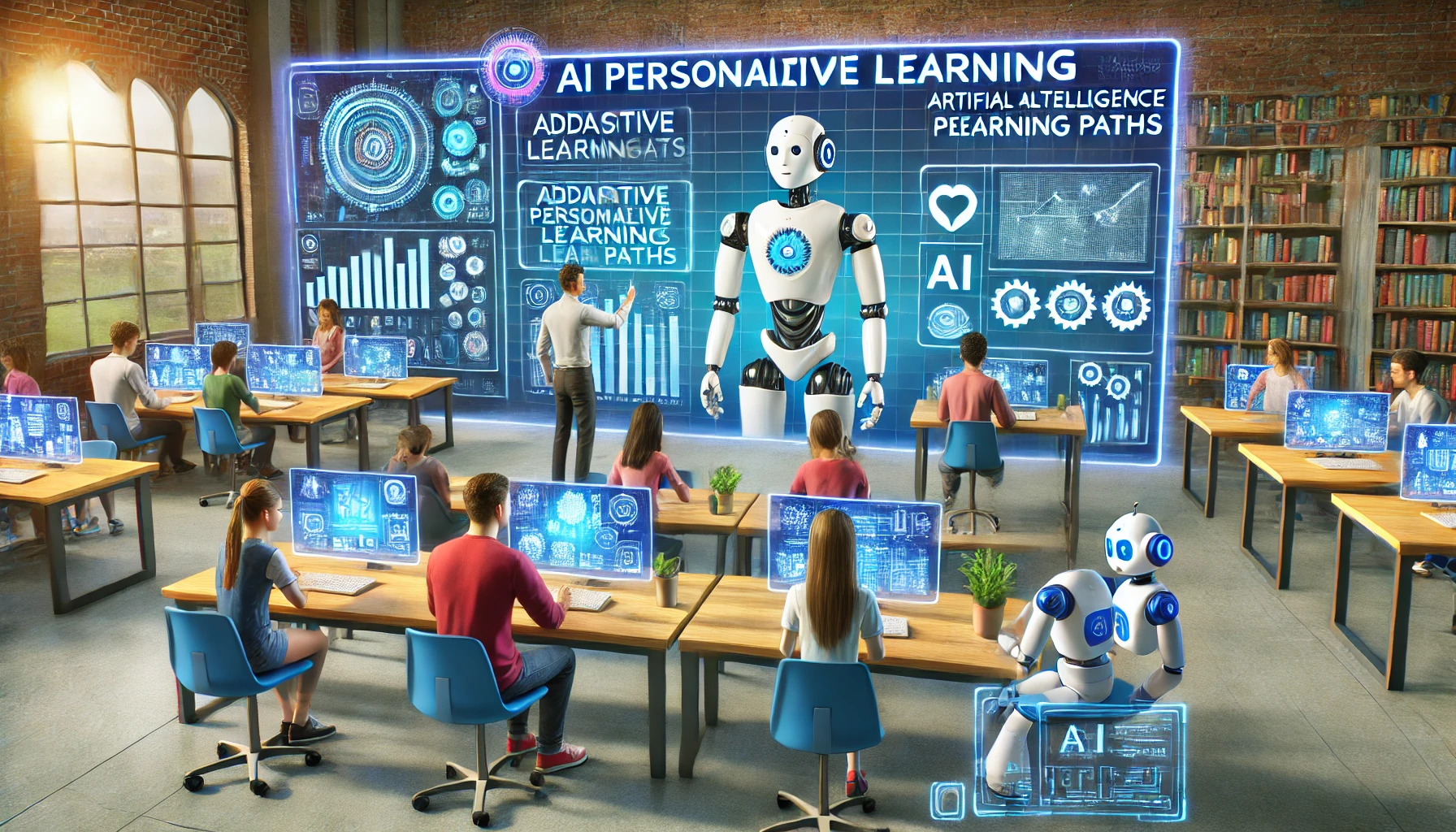Education is undergoing a remarkable transformation as artificial intelligence (AI) reshapes traditional approaches to teaching and learning. AI’s ability to process vast amounts of data and provide tailored insights has made personalized learning a reality for schools and universities around the world. By adapting content, delivering real-time feedback, and supporting educators, AI is not only improving academic outcomes but also enhancing the learning experience for students. This article explores the ways AI personalizes education, highlights success stories, and examines its potential for the future.
The Need for Personalization in Education
Traditional education systems often rely on a one-size-fits-all model, where every student follows the same curriculum, regardless of their learning pace, style, or background. This approach leaves many students struggling to keep up, while others become disengaged due to a lack of challenge. Personalized learning addresses these issues by tailoring educational experiences to individual needs, preferences, and abilities.
Research shows that personalized learning improves student engagement and retention. By allowing students to progress at their own pace and focus on areas where they need improvement, educators can create an environment where learning is both effective and enjoyable. However, implementing personalized learning at scale has historically been challenging—until now, with the advent of AI.
AI Tools and Techniques in Personalized Learning
AI-driven tools and techniques are revolutionizing personalized education by enabling a deeper understanding of student behavior, preferences, and performance. Here are some key applications:
Adaptive Learning Systems
Adaptive learning platforms use AI to analyze student performance and adjust content in real-time. Tools like Coursera and Khan Academy leverage algorithms to recommend lessons, quizzes, and resources based on a student’s strengths and weaknesses. For example, if a student struggles with algebra but excels in geometry, the platform prioritizes algebraic concepts while reinforcing geometry skills.
Real-Time Feedback and Assessments
AI-powered systems provide instant feedback, helping students identify and correct mistakes as they learn. These systems use natural language processing and machine learning to evaluate written responses, grade assignments, and suggest improvements. Real-time feedback not only enhances learning but also saves educators valuable time.
AI Tutors and Assistants
AI tutors, such as IBM Watson and tools like ChatGPT, act as virtual teaching assistants. They can answer questions, explain complex concepts, and provide resources tailored to a student’s queries. Unlike traditional tutors, AI assistants are available 24/7, offering round-the-clock support.
Natural Language Processing in Interactive Learning
Natural language processing (NLP) enables AI systems to understand and respond to human language. For instance, Duolingo uses NLP to deliver personalized language lessons, adjusting difficulty levels based on user performance. By analyzing user input, these tools create a more engaging and interactive learning experience.
Success Stories and Applications
The impact of AI on education is evident in various success stories from schools and universities:
K-12 Education: DreamBox Learning
DreamBox Learning, an AI-powered platform for math education, has demonstrated significant results in K-12 schools. By adapting lessons to each student’s progress, the platform helps build foundational skills and boosts confidence. Teachers can also access detailed analytics to track student performance and adjust their teaching strategies accordingly.
Higher Education: Georgia Tech’s AI Teaching Assistant
At Georgia Tech, an AI teaching assistant named Jill Watson has been helping students in online courses. Powered by IBM Watson, Jill answers routine questions, assists with assignments, and provides timely feedback. This has not only improved student satisfaction but also allowed human instructors to focus on more complex teaching tasks.
Remote and Hybrid Learning
AI has played a crucial role in remote and hybrid learning environments, particularly during the COVID-19 pandemic. Platforms like Zoom integrated AI features such as real-time transcription and automated attendance tracking, making virtual classrooms more efficient and inclusive.
Ethical Concerns and Challenges
While AI offers immense potential, its adoption in education raises several ethical concerns and challenges:
Data Privacy
AI systems rely on vast amounts of data to function effectively. However, collecting and storing student data raises privacy concerns. Institutions must ensure compliance with data protection regulations and implement robust security measures to safeguard sensitive information.
Algorithmic Bias
AI algorithms are only as unbiased as the data they are trained on. If training data contains biases, AI systems may inadvertently reinforce inequalities. Developers and educators must work together to identify and mitigate biases in AI-driven tools.
Accessibility and Equity
Not all schools and universities have access to the resources needed to implement AI solutions. Bridging the digital divide is essential to ensure that all students benefit from personalized learning, regardless of their socioeconomic background.
The Future of AI in Education
The future of AI in education is promising, with several emerging trends and possibilities:
Lifelong Learning
AI-powered platforms are increasingly supporting lifelong learning by offering courses tailored to individual career goals and interests. These platforms use machine learning to recommend personalized learning paths, enabling professionals to upskill and reskill efficiently.
Combining AI with VR/AR
The integration of AI with virtual and augmented reality (VR/AR) is set to revolutionize education. Imagine immersive history lessons where students explore ancient civilizations or biology classes where they virtually dissect organisms. AI enhances these experiences by providing real-time feedback and adaptive challenges.
Generative AI in Content Creation
Generative AI tools, like ChatGPT, can create customized learning materials, quizzes, and simulations. This reduces the workload for educators while ensuring that students receive engaging and relevant content.
Conclusion
Artificial intelligence is transforming education by making personalized learning more accessible, efficient, and effective. From adaptive learning systems to AI-powered tutors, these technologies empower students to reach their full potential while supporting educators in delivering high-quality instruction. However, the journey toward widespread AI adoption must address ethical concerns, such as data privacy and equity, to ensure a fair and inclusive future for all learners.
As we move forward, the synergy between technology and education promises to create a learning ecosystem that is not only innovative but also deeply human-centered. Embracing this transformation responsibly will unlock endless possibilities for students and educators alike.
